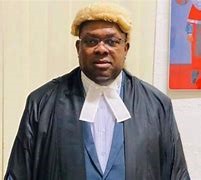By Emma Black

Hon Justice Adrian Fisher
After more than two years in court, Hon Justice Fisher of High Court No.2 has delivered a second ruling on 7th February, 2025 on a contentious land dispute case involving trespass, illegal construction, and encroachment at Fornima, Goderich. The case, which has drawn significant public attention, involves Joseph Alex Musa as the plaintiff and Moses Sendor, an employee at the Ministry of Lands, Housing, and Country Planning (MLHCP), as the defendant.
The dispute dates back to a writ of summons issued on October 2, 2020, where Joseph Alex Musa and Mrs. Jesting Zainabu Musa claimed ownership of a piece of land at Lion Street, Fornima, Goderich. The land, documented in survey plan LS743/97 and attached to a conveyance dated May 4, 1998, was allegedly encroached upon by Moses Sendor. The plaintiffs sought a declaration affirming their ownership of the land, damages for trespass due to illegal occupation, an injunction restraining the defendant from continuing construction on the land.
Hon Justice Fisher ruled in favor of the plaintiffs on 21st February, 2024 affirming that they were the rightful owners of the land. The ruling declared that all documents presented by the defendant were fraudulent and used to illegally claim ownership. The court ordered an immediate cessation of all construction activities and removal of any structures blocking access to the plaintiffs’ property.
Following the first ruling, the defense counsel for Moses Sendor filed a motion on March 11, 2024, seeking, a stay of execution of the judgment pending appeal, a temporary suspension of all subsequent orders until the appeal was determined, and financial relief due to the defendant’s economic hardship, citing an inability to pay the court-imposed fines.
The defense counsel argued that demolishing the structure before the appeal would cause irreparable damage, especially given that the defendant had invested his life savings into the property. The court, however, required evidence of special circumstances that would justify a stay of execution.
During hearings on March 13, 15, and 21, and April 15, 2024, the defendant’s legal team, led by Mr. C. Pujeh and D. Fofanah, requested more time to comply with the ruling. They initially sought a six-month extension to resolve the matter but later abandoned their motion, acknowledging that the judgment was enforceable.
Mr. M. P. Fofanah, representing the plaintiffs, insisted on immediate compliance, emphasizing that the access road to their property was blocked due to the defendant’s illegal construction. The plaintiffs also noted that despite the court’s ruling, the defendant had not taken any action to vacate the land or compensate them for legal costs.
Hon Justice Fisher reaffirmed his initial decision in a sitting on 7th February,2025, ruling that the defendant had once again lost the case. The court found that all documents presented by Moses Sendor were fraudulent and upheld the original order for the demolition of illegal structures.
In the final judgment, Justice Fisher made the following orders:
The request for a stay of execution was denied, the Under-Sheriff was ordered to demolish and remove all structures blocking access to the plaintiffs’ land immediately, the defendant was held responsible for all costs related to the demolition and the legal process, amounting to NLe70,000.
The ruling serves as a landmark case in Sierra Leone’s legal system, emphasizing the judiciary’s firm stance against land fraud and illegal encroachment. It reinforces the principle that fraudulent land claims will not be tolerated and that rightful landowners will be protected by the courts.
With the demolition now set to proceed, the plaintiffs are expected to regain access to their property after years of legal battles. Meanwhile, the case also raises concerns about fraudulent land transactions within government institutions, as the defendant was an employee of the Ministry of Lands, Housing, and Country Planning.
Justice Fisher’s ruling underscores the importance of lawful property ownership and the consequences of fraudulent land acquisition. The decision is expected to serve as a deterrent to land grabbers and reinforce the necessity of proper legal documentation in property transactions in Sierra Leone. As the demolition process begins, the case remains a stark reminder of the long legal battles many landowners face in securing their rights.




